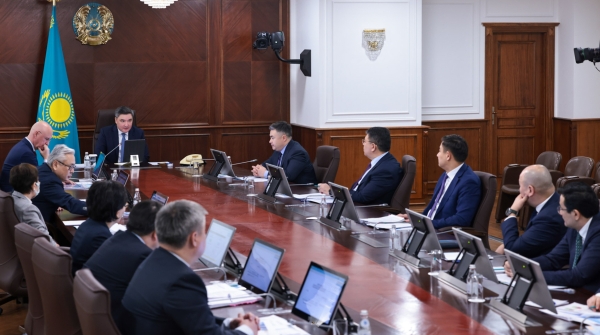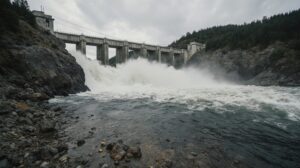Prime Minister Olzhas Bektenov convened a meeting to discuss the implementation of the Head of State’s directive on modernizing Kazakhstan’s housing and communal services. The initiative, part of the National Project “Modernization of the Energy and Utilities Sectors,” aims to reduce accidents and infrastructure wear and tear while enhancing the reliability and quality of utilities.

The national project outlines an ambitious plan to modernize energy generation and utility networks. It includes the implementation of 15 new energy projects, adding 5,259 MW of capacity, and the reconstruction of 14 existing facilities, resulting in a 7.3 GW capacity increase.
This will also lead to a reduction in infrastructure depreciation by an average of 15%. In addition, the project includes the modernization of 86,000 km of utility networks. These efforts are expected to decrease the wear and tear of utility systems across several sectors: heat supply will drop from 53% to 40%, electricity supply from 62% to 45%, water supply from 39% to 34%, and water disposal from 54% to 40%.
Deputy Prime Minister Kanat Bozumbayev highlighted plans to address critical issues in regions where network depreciation exceeds 65-70%. To fund these upgrades, KZT 6.8 trillion ($13bn) will be allocated by 2029. Discussions also included the potential use of digital tenge technology to ensure transparent fund management and monitor the implementation of the project.
The modernization project also places a strong emphasis on boosting the local economy. The construction of 27 new production facilities is planned to reduce Kazakhstan’s reliance on imports and stimulate the development of related sectors, including metallurgy and manufacturing. The initiative will create 3,500 jobs, with a focus on engaging domestic businesses and sourcing local goods and services. Prime Minister Bektenov emphasized,
“Ensuring uninterrupted heat, energy, and water supply is the government’s top priority. This project represents a large-scale renovation of our worn-out infrastructure. We must prioritize domestic businesses to maximize local participation in this effort.”
The Prime Minister tasked the Ministry of National Economy, in coordination with other agencies, to oversee the project’s execution. The Ministry of Industry and Construction was also instructed to ensure the full utilization of domestic enterprises producing products for the housing and communal services sector.
Reports on the project’s implementation plans were presented by key officials, including Minister of Industry and Construction Kanat Sharlapaev, Vice Minister of Energy Alibek Zhamauov, and Chairman of the Committee for the Regulation of Natural Monopolies Asan Darbaev. Contributions were also made by Deputy Prime Minister Tamara Duisenova and National Bank Chairman Timur Suleimenov.
Following the meeting, the proposed strategies for the National Project on the Modernization of the Energy and Utilities Sectors were officially approved.




